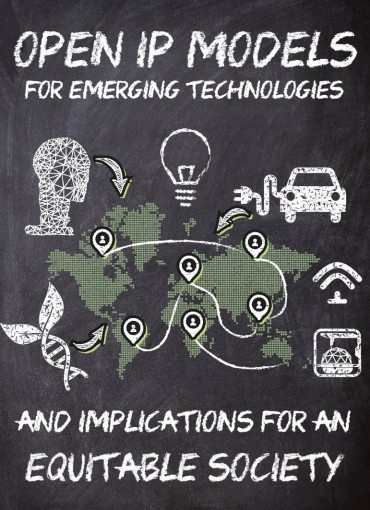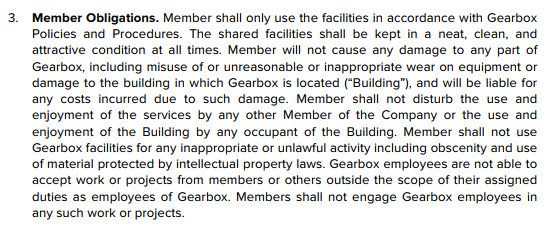Open AIR Researcher Presents at University of Cambridge Seminar Series on Open Intellectual Property Models
- Victor Nzomo |
- March 7, 2018 |
- CIPIT Insights,
- openAIR

On 28 February 2018, the Centre for Research in Art, Humanities and Social Sciences at the University of Cambridge continued its seminar series on ‘Open Intellectual Property (IP) Models of Emerging Technologies and Implications for the Equitable Society’. The topic of the seminar was ‘Open IP in emerging and developing economies’ where the goal was to examine whether emerging and developing economies have an opportunity to take a radical approach to intellectual property (and also collaborative innovation practices) when it comes to areas like manufacturing, green tech, biotech and computing/artificial intelligence. If so, what could that look like and what would it mean for equitable and sustainable development? The speakers during this seminar included: Elisabeth Eppinger (Freie Universität Berlin); Kenneth Huang (National University of Singapore) and Valeria Arza (CENIT). The presentation made on behalf of Open African Innovation Research (Open AIR) was on our on-going work on open and collaborative innovation in and around high-tech hubs in Africa, particularly if/how they are using IP to facilitate openness.

As Open AIR’s work continues to show, in the African context, knowledge and innovation are occurring in alternative, non-formalized worlds that find space outside formal structures. Previous evidence-based research from different African countries has shown that there is an abundance of user-driven, informal, organic, incremental, and indigenous modes of knowledge production occurring. These informal activities lie largely outside the realm of formal knowledge governance systems and are reliant on informal or traditional knowledge governance mechanisms. In most of Africa, the explosion of high tech innovation exists in an IP vacuum.
Over the past five years, incubators, accelerators, maker spaces, and co-working spaces have multiplied throughout Africa. More and more entrepreneurs and innovators are seeking support from these tech hubs, demonstrating a strong culture of innovation throughout Africa. An important issue to consider is whether these technology hubs and the startups they support are in need of formal IP systems to succeed, or whether they exist and flourish precisely because of this lack of formal IP. Thus Open AIR’s research set out to analyse, among other things, the impact of formal IP rights on the success or failure of Africa’s burgeoning tech initiatives at and around high technology hubs. Technology hubs are buzzing with innovation and knowledge creation. As such, it is important to critically examine systems of knowledge governance in place in different technology hubs and the extent to which they support the different stakeholders in achieving their objectives.
Studies of Africa’s technology hubs simply suggest that they can take many forms, with most operating as some combination of a workspace, internet café, coffee shop, training centre, incubator, accelerator, event venue, and/or makerspace. While there is great diversity between hubs in terms of structures, amenities, membership, and other factors, the general consensus among academics and hub members is that hubs serve as a meeting place for a community of technology entrepreneurs. According to the World Bank, “tech hubs” are organizations that predominantly offer targeted activities and resources to grow innovative technology-driven business ideas by early stage entrepreneurs. While never fully defining the categories of tech hubs used in its mapping exercise, the World Bank divides these hubs into 4 types: government-led hubs, academic institution-led hubs, civil society-led hubs, and hybrid hubs. In 2016, the World Bank published its latest update to their mapping of tech hubs, reporting that there are now 173 hubs in Africa, with the highest number being in South Africa, followed by Kenya. Currently GSMA estimates that there are over 314 tech hubs on the continent.
Using the case of Kenya, our foundational paper sought to go further, not just proposing a framework for the counting of “tech hubs”, but also identifying archetypes of hubs. As such, this paper proposes three archetypes of hubs. For this classification system, we used several variables such as the hubs’ size and scope, geography, administrative structure, regulatory framework, business practices, funding, participant demography, and sustainability. Using these variables, we are able to identify three archetypes of “hubs”: cluster hubs, company hubs, and country hubs. For purposes of this presentation, our focus will be on the second type of hub we have identified namely the “company hub”. This describes a hub as a specific entity in itself, attracting and defining its own community and interacting with the outside world in a manner similar to a company. This is how “hubs” are most commonly referenced and understood in the existing literature, with numerous examples both within and outside of Kenya.
(Alternative) Approaches to IP at High Tech Hubs
Given the lack or widespread absence of formal IP in Africa’s tech ecosystem, our research identifies three main dimensions of knowledge appropriation occuring in and around tech hubs:
• Naming, logos and other brand features
• Innovations and creative outputs of hubs and their participants
• Dealing with primary and secondary IP infringements
1. Naming, logo and other brand features

It took four years for iHub to register its brand as a mark in Kenya.
As the number of startups around tech hubs continues to grow, there is a likelihood of rivalries developing in relation to similarities between names, logos and branding design. However, in our observation, tech hubs and startups continue to use word of mouth, social media, domain name registrations or even company registrations as opposed to the trade mark or copyright systems.
2. Innovations and creative outputs of hubs and their participants

The management of rights to use of innovations and creative outputs produced by startups in the tech hub community is a core issue. However, the pursuit of formal industrial property protection such as patent or design rights is not the focus of the tech hubs and startups. The focus is on open collaboration and, according to them, such collaboration would not be fully possible if participants demanded, for instance, the signing of non-disclosure agreements before sharing their ideas with others. Some of the IP alternatives mentioned by the techies were: first mover or second mover advantage and secrecy.
3. Dealing with primary and secondary IP infringements

Example from Gearbox terms and conditions for its members.
One example can be found in the case of 3D printing where hub participants may download an IP-protected design, print it, and commercially gain from it, and the issue may arise as to whether the makers and/or the tech hub would be liable for IP infringement. Another example may also arise in other contexts such as reverse engineering of patented inventions and remixing of copyrighted works. In response to this potential liability for IP infringements, tech hubs widely use free and open source software and other materials and works licensed under permissive creative commons licenses. The tech hubs also encourage to make their works available under similar open licenses.
What about formal IP?
There is a balancing act between fostering open and collaborative innovation on one hand and encouraging strategic use of ‘closed’ proprietary systems such as IP. Most tech hubs and startups view formal IP as a secondary concern. Their primary concern is disclosing, discussing their ideas and concepts with others in the tech hub community in exchange for valuable feedback, cross-fertilisation, exchange that will lead to development of a working prototype that can be further tested and developed into a viable product that can be taken to market. The average tech hub and startup would ordinarily start pursuing formal IP protection in the 4th or 5th year of existence, once it has an established name, a product or products that are well-known in the market and presumably a steady flow of capital.
In the final analysis, the spirit of openness and collaboration shows us that openness is essential to innovation in the African context. This runs contrary to conventional thinking that exclusivity and proprietary control over knowledge and ideas is necessary to drive innovation and in the tech hub space we see the exact opposite thing happen.
